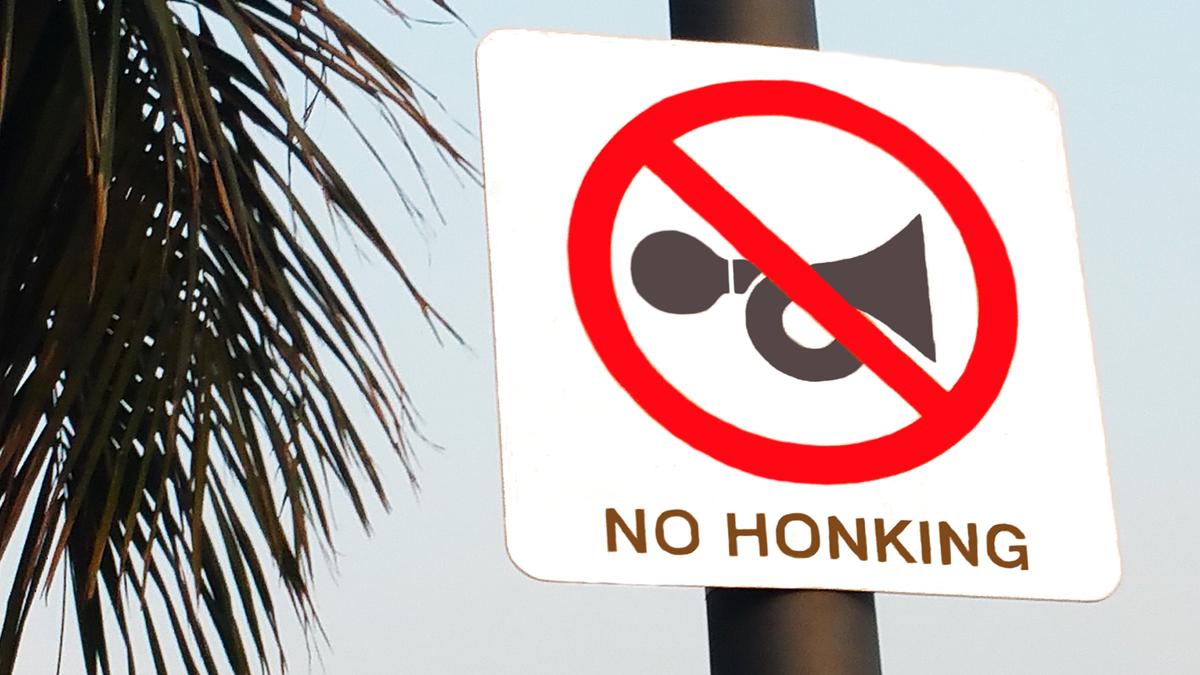
A rule that is often violated.
| Photo Credit: Getty Images/iStockphoto
A Japanese tourist recently posted in Reddit about her traumatic experience of travelling through India, saying the constant honking and sounds of firecrackers led to an emotional breakdown. Another tourist from Japan, who recently visited Bengaluru, cut short his tour again unable to bear with the incessant honking. The experience of both resonate with many other foreign visitors who find India’s traffic noise unbearable.
For visitors from countries such as Japan, where discipline and silence in public spaces are valued, Indian roads can feel like a war zone. In Japan, there is an unwritten rule of not using mobile phones while travelling on a bullet train.
Many foreign tourists have pointed out the never-ending cacophony due to constant honking of vehicles. If you have ever set foot in an Indian city, one of the first things that assaults your senses — apart from the sheer volume of people — is the relentless, almost maddening sound of honking.
The question is why do Indians honk so much? And why is it so deeply embedded in the driving culture? Recently, I was caught in a traffic jam because a heavy vehicle had blocked the road. The drivers were honking as if the traffic would ease on its own. Mindless honking has become deeply ingrained in our psyche.
Unlike in many countries where honking is reserved for emergencies or warnings, in India, the horn serves multiple purposes, most of which have nothing to do with emergencies. It is used to indicate impatience, assert dominance, and warn pedestrians, and sometimes, it is sounded just out of habit. In some cases, drivers even honk when the traffic light is red, as if wanting it to turn green faster.
Public transport, particularly autorickshaws and buses, are some of the biggest culprits. They honk to signal they are overtaking, slow pedestrians, announce their presence and sometimes for no apparent reason at all. And it is not just limited to them; even private cars and two-wheelers contribute to the never-ending cacophony.
Lane discipline is almost non-existent in many cities. Vehicles weave in and out of traffic without using the indicators and honking becomes a substitute for indicators. It is a way of saying, “I’m here, don’t hit me!” Another challenge is navigating the roads, where you will suddenly find two-wheeler riders overtaking your vehicle, when you are trying to turn your vehicle at the intersections. Many accidents occur due to the callous driving of these vehicles. Potholes, stray animals, jaywalkers, and cycle-rickshaws are other examples that call for constant alertness while driving.
Let us be honest. Indians are not the most patient drivers. Traffic congestion is so severe in cities such as Mumbai, Delhi, and Bengaluru that people resort to honking out of sheer frustration. Though there are rules against excessive honking, enforcement is weak. In cities such as Mumbai, “no honking” zones exist, but those who violate the rule are rarely punished.
A few years ago, when I was in Bangkok, there was a huge traffic jam en route to the airport. I did not find a single driver honking. I noticed similar situations in some of the southeastern countries.
Studies have shown that excessive noise pollution, particularly from honking, can lead to stress, anxiety, hearing loss, and even heart problems. Many residents have grown so accustomed to it that they barely notice, but for foreign tourists, the sheer intensity can be overwhelming.
There is no law in most of the cities to curb honking. However, even with the law, real change requires a cultural shift. Cities such as Mumbai have experimented with punishment by extending red light durations every time someone honks, but such measures are hard to implement nationwide.
Unless drivers themselves become more disciplined and authorities enforce stricter penalties, the honking problem will persist. Until then, tourists (and even local people) will have to endure the deafening soundtrack of Indian traffic — a never-ending orchestra of chaos.
Published – March 23, 2025 03:03 am IST
